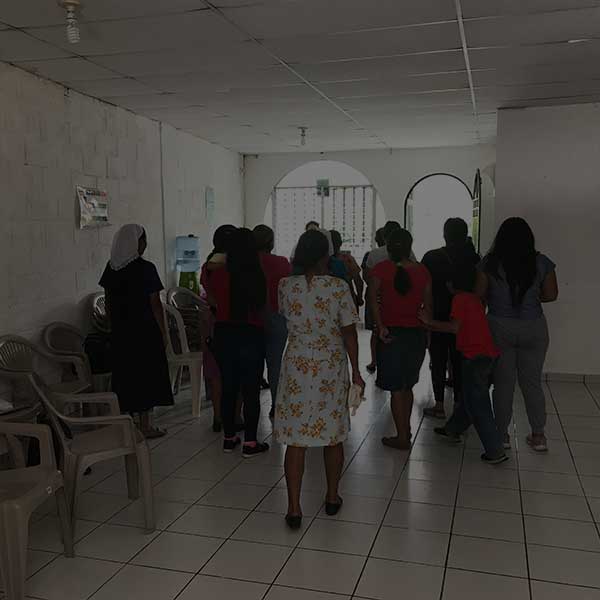
This is What Dialogue for Democracy Looks Like
Dialogue is an essential part of creating democracy and recognizing human rights. When we speak and listen as equals we develop the practice of democratic principles. The world is facing enormous challenges to democracy and human rights from tendencies toward authoritarianism and a myriad of tools to exclude the voices of anyone who doesn’t conform to dominant thought.
Cristosal brings people whose rights have been violated to listen, to encourage them to speak of their experiences, and to learn from one another. This work has become the essential tool of our Human Rights Education program and in every space we have learned how powerful it really is.

Under the state of exception in El Salvador, for example, people who have experienced rights violations are very isolated and fearful. In our dialogues, we create a safe space for these people to express their pain. This space reinforces their awareness that they are not alone, and that there are people out there who are also struggling and fighting for their rights to be recognized.
In the process of these dialogues, we also hear their cases and can better discern how to refer them to other areas of Cristosal, for protection and legal support. When we visit the communities we find many people in need and interested in approaching us. For example, we identified a group of indigenous people in a community in western El Salvador. Through dialogue sessions, we identified the kinds of rights violations they were experiencing. They received legal advice and their cases were registered through our research and reporting system. As we documented more and more cases of community organizations facing rights violations, it was important to include the voices of Salvadoran indigenous communities.
The experiences of 71 organizations from around El Salvador were documented and included in a report on how the state of exception had impacted the right to participate, and the freedoms of expression and association. The report was presented in the presence of many of the organizations. In isolation, communities can become disheartened in their struggle. Together, their voices and experiences are stronger and this all starts from dialogue.
